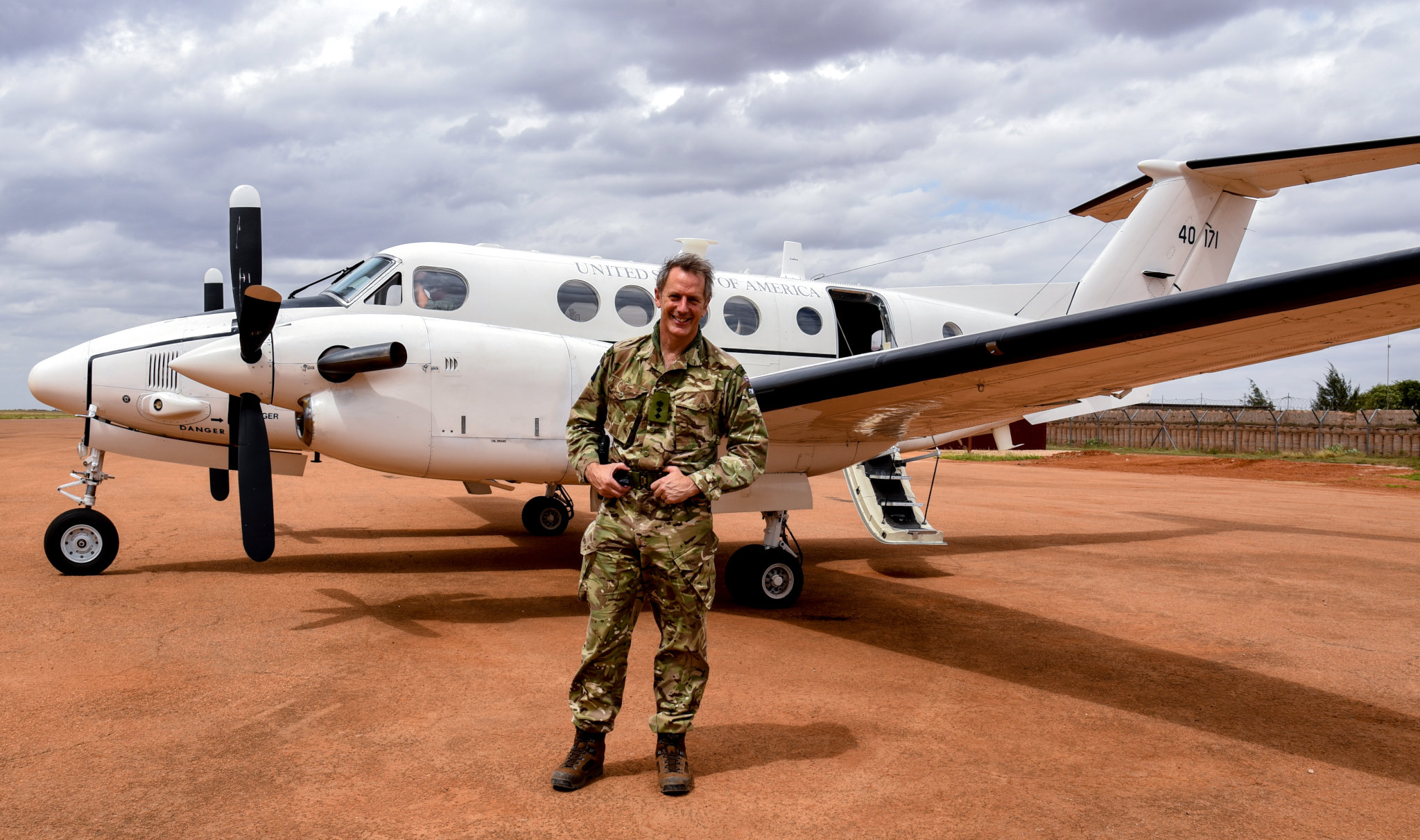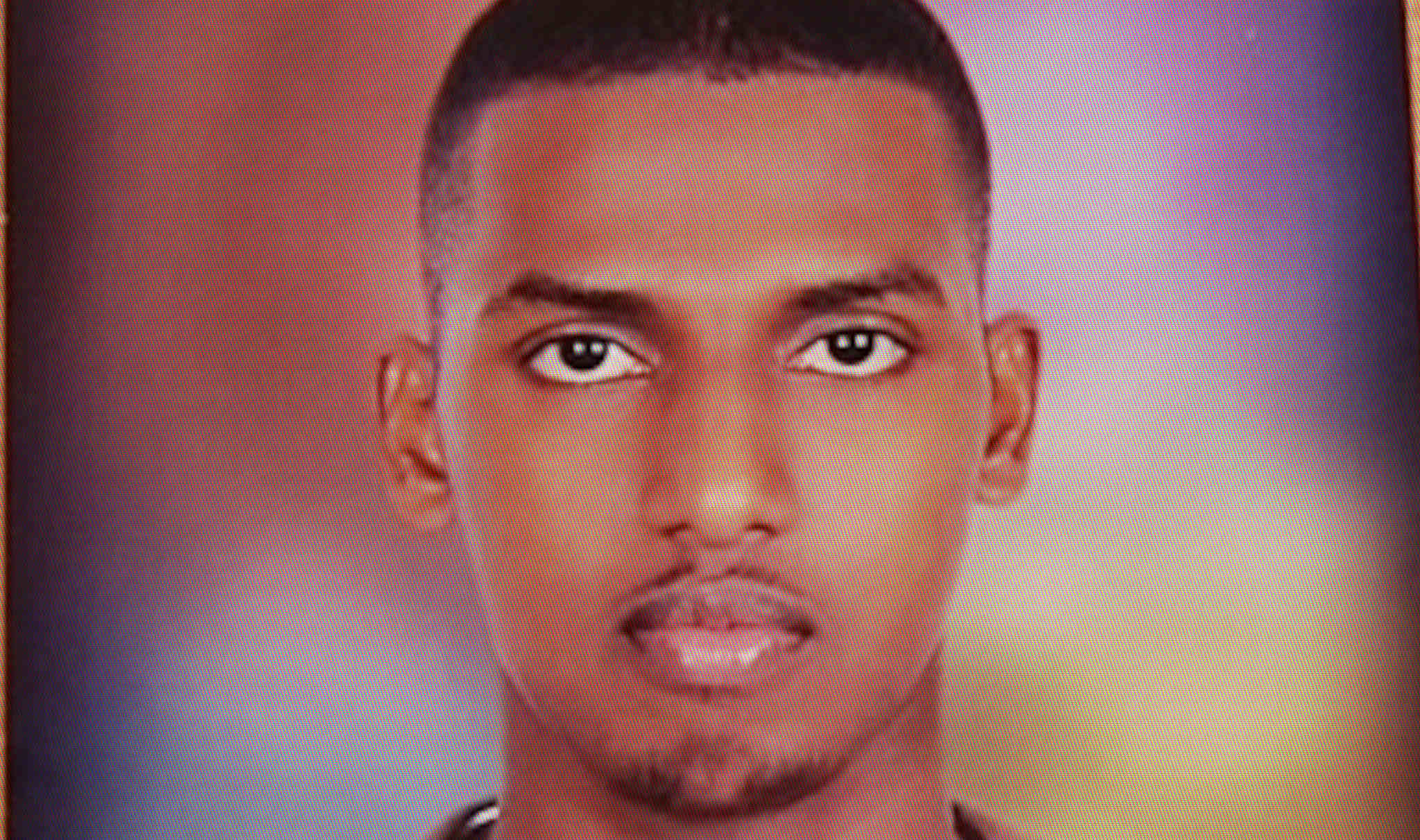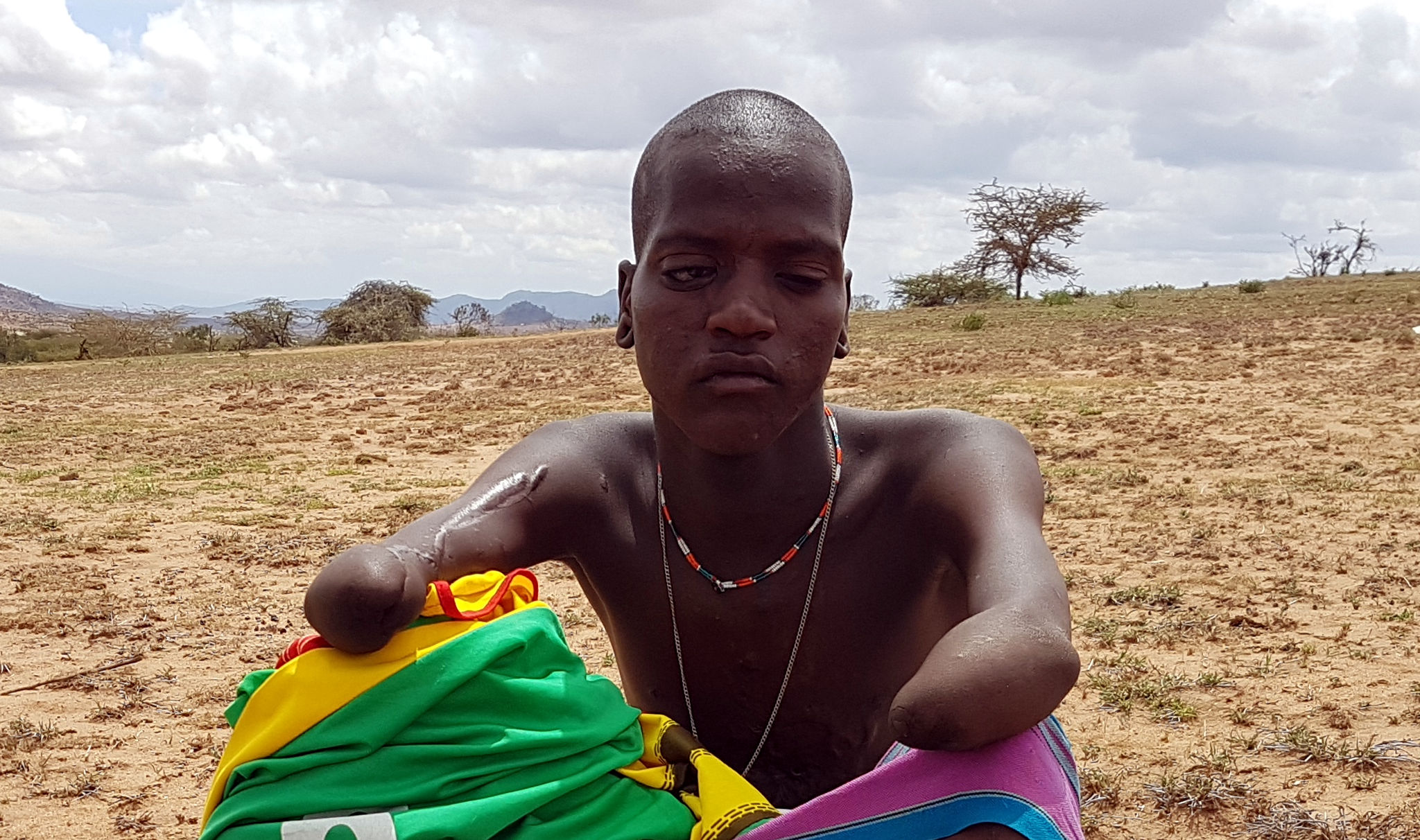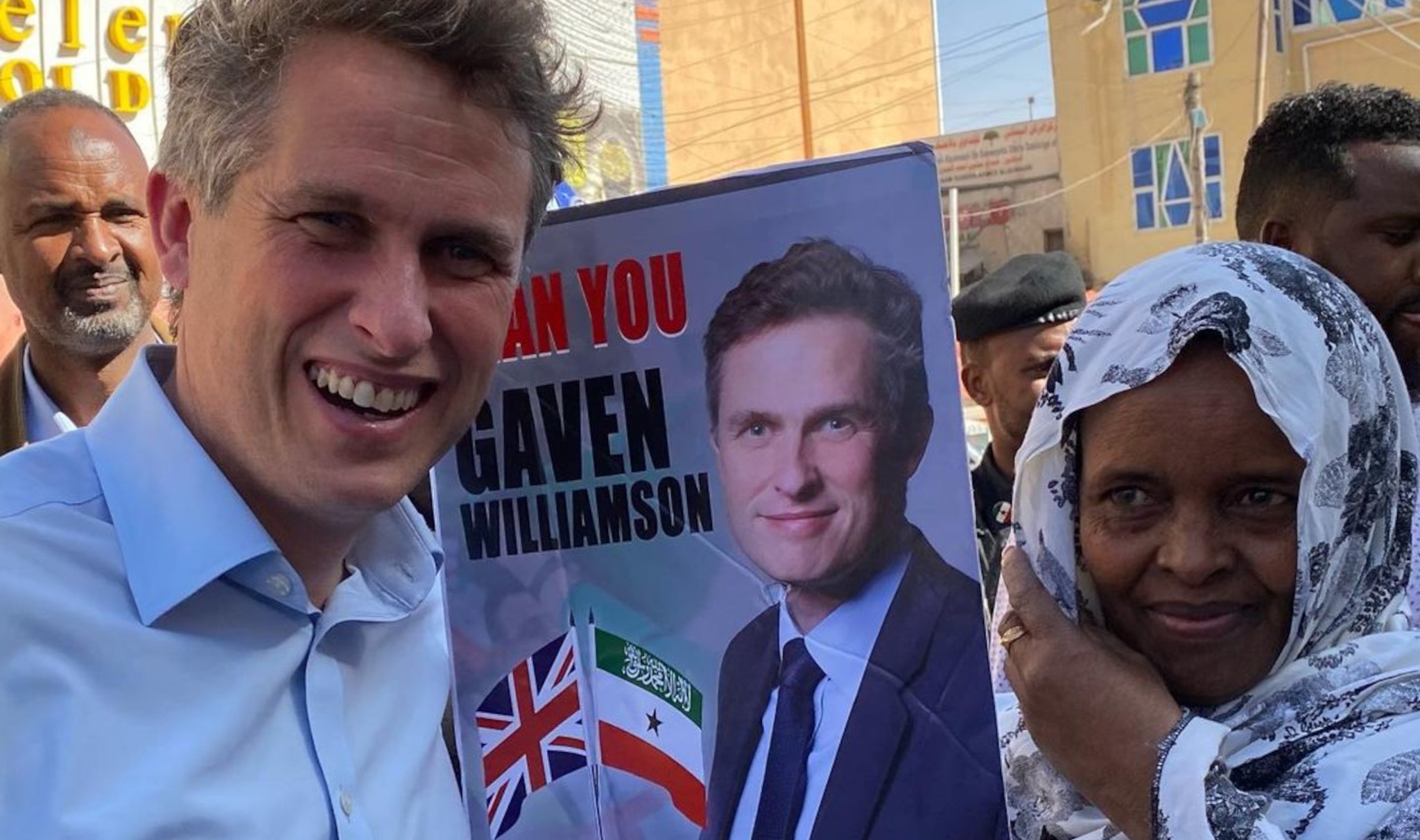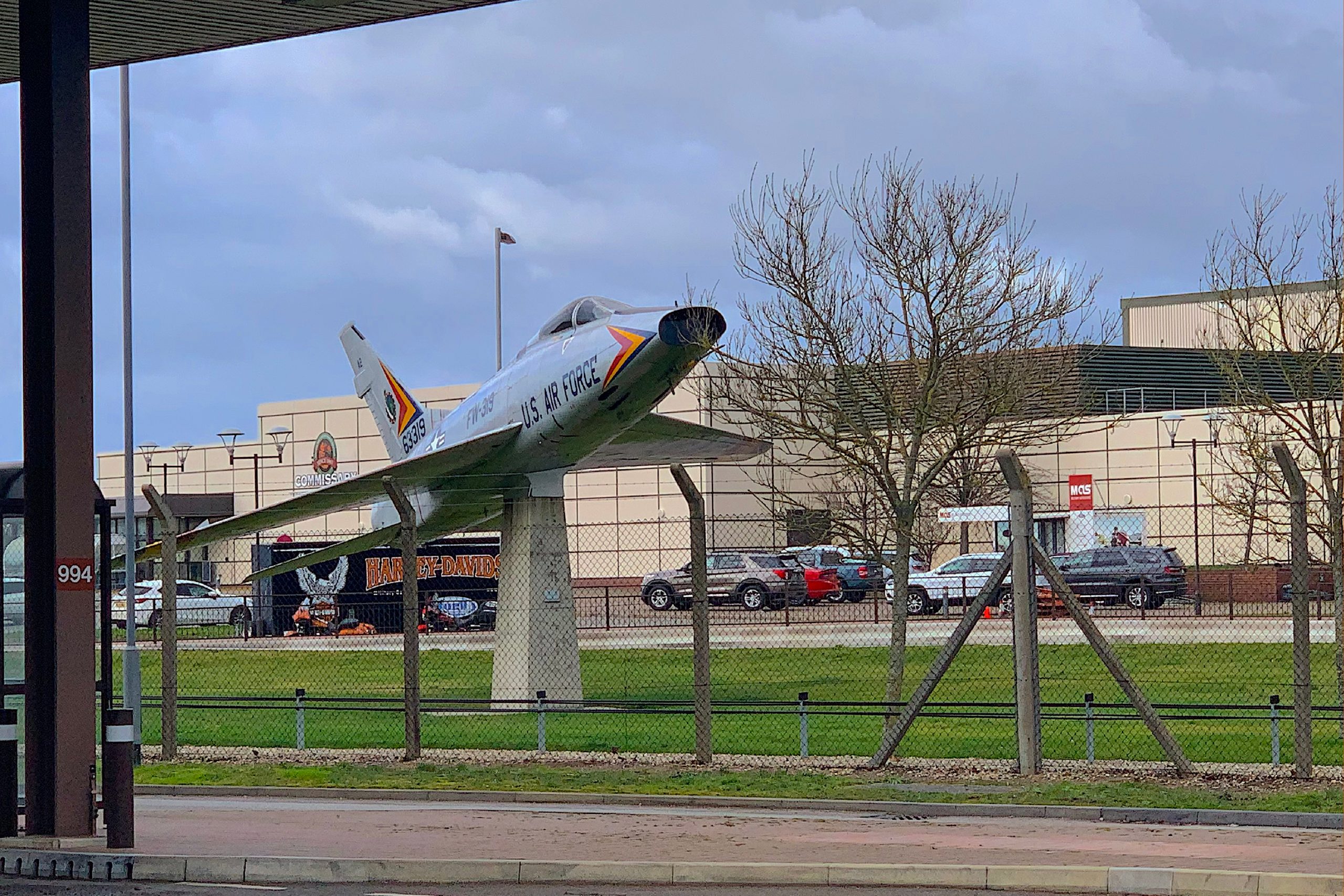“Africa is now the epicenter of international terrorism,” said General Michael Langley, the chief of US Africa Command (Africom), the umbrella organisation overseeing US military activity on the continent, earlier this year.
“To keep terrorists out of the Homeland, we must fight them in Africa”, he added in testimony before the US Senate Armed Services Committee.
For 15 years, Africom has carried out an expansive military mission on the African continent from dozens of outposts, including its crown jewel, Camp Lemonnier in the sun-bleached nation of Djibouti.
The command regularly highlights its mundane missions like training exercises and humanitarian efforts and says far less about its commando raids, drone strikes, and secret programmes.
The latter involve Special Operations forces employing local proxies to conduct US-directed missions targeting America’s enemies to achieve America’s aims.
To battle militant groups across the continent – including Al-Qaeda and ISIS offshoots and the Somali terror group Al-Shabaab – the US military relies on a sophisticated intelligence apparatus involving surveillance and reconnaissance efforts and a bevy of analysts to provide expertise.
Some analysts offer advice on mission planning when the US conducts ground raids. Others man “strike cells,” watching live aerial footage and decide whether to conduct lethal drone attacks.
Intelligence country analyst
From 2014 to 2015, Sergeant Carina Reeves served as “the Intelligence Country Analyst of the only Combined Joint Intelligence Center on the continent,” based at Camp Lemonnier. She “trained and mentored over 50 US Army, Navy, Air Force, and Marine intelligence analysts,” according to documents obtained by Declassified UK via the Freedom of Information Act (FOIA) in the US.
Reeves “identified a communication gap between” the intelligence directorate of Combined Joint Task Force Horn of Africa (CJTF-HOA) and a Special Operations counterpart. She even “initiated and organised weekly meetings between the two organisations and ensured the right country analyst was present to provide intelligence relevant to… ongoing operations.”
For her efforts, she was awarded a US commendation medal.
None of this would be notable if Reeves was a member of the US military. But Sergeant Reeves was a member of the British army.
For at least a decade, the United Kingdom has played a significant role in Africom’s operations according to a collection of almost 200 pages of documents obtained by Declassified.
And the UK is just one of at least 18 non-African countries, including Australia, Canada, France, Japan, Spain, South Korea, and Turkey, who have contributed to US military operations on the African continent.
Foreign legion
Africom was defensive about characterisations of this foreign legion. “While we have a number of non-African liaison officers assigned to the command,” Africom spokesperson Kelly Cahalan told Declassified, “it would be a mischaracterisation to call our multi-national partners a ‘coalition’ — we do not have ‘coalition’ forces in Africa.”
The exclusive documents, however, consistently refer to such individuals as “coalition” officers or personnel taking part in “coalition operations.”
Africom says it has no idea how many foreign troops have served with the command. “We don’t track the number of multinational personnel we’ve worked with in any sort of organised way,” said Cahalan, while acknowledging that the UK does provide “liaison officers” to the command’s Multinational Cooperation Center.
“UK military personnel play important leadership roles in Africom’s efforts”
The FOIA documents, open-source information and reporting by Declassified show that UK military personnel play important leadership roles in Africom’s efforts, filling key posts at CJTF-HOA, and effectively serving as US military personnel.
The UK Ministry of Defence (MOD) failed to answer multiple queries about its support of Africom operations.
When questioned in parliament in 2014, then defence minister Mark Francois admitted that UK military personnel were “responsible for the planning and support of US military operations in East Africa.” Press reports indicate three officers filled such roles at the time.
The declassified records and US military publications show that level of British support began as early as 2013 and has continued in the years since.
‘An American officer’
From 2020 to 2021, for example, the British army’s Colonel Hugh Baker served as the Director of Strategy and Plans at CJTF-HOA.
Baker, now retired from the military, spent about 25 years working with US forces in some capacity, having served in Afghanistan and Iraq but said that at CJTF-HOA he was, effectively, “an American officer who happens to wear a British uniform and speaks with an English accent.”
“He was an American officer who happens to wear a British uniform”
Lt. Col. Craig Cudlipp, who served at the same time as Baker, was director of the Future Operations and the Crisis Branch at CJTF-HOA. He conducted site surveys of US embassies and was tasked with travelling alongside an American rapid response force if embassies in East Africa found themselves in need of security augmentation or military-assisted evacuation.
“I’ve worked with the Americans before but now I’m in a completely different role and a different direction of travel in terms of mission status,” Cudlipp told a US military publication in 2020. “I’ve never been read-in to the level I am now, especially certain mission aspects and responsible for that information as well. It’s quite cool actually.”
Redacted by Africom
The documents obtained by Declassified were redacted by Africom, removing the names of all UK military personnel aside from Reeves. Efforts were made to contact her through email and a professional networking website, but she did not respond.
The records, award citations and supporting materials related to foreign troops aiding Africom, show that several British personnel in prominent roles at CJTF-HOA were focused on the long-running war against Al-Shabaab in Somalia.
During 2014 and 2015, a British officer served as the Deputy Director of CJTF-HOA’s Plans and Exercises Branch.
The officer led efforts to produce “solutions to the complex issues preventing mission success in Somalia Security Sector Reform” while enhancing “CJTF-HOA’s ability to support counter-violent extremist organisation operations by participating in the Somalia military technical working group meeting in Mogadishu”, Somalia’s capital.
Awarded a medal for “meritorious service for the armed forces of the United States” that British officer was lauded for his efforts toward achieving “peace” in East Africa.
In 2015, another member of the British army served as the Chief of the Regional Synchronisation Branch of CJTF-HOA’s Security Force Assistance Division.
The declassified documents show that he was focused on assessments of troop-contributing countries of the African Union Mission in Somalia (Amisom) and fostering relationships between CJTF-HOA and the European Union Training Mission-Somalia as well as the British Peace Support Team, which conducted trainings of Amisom forces.
War in Somalia
During 2016 and 2017, a graduate of the Royal Military Academy at Sandhurst and 23-year member of the British army served as the director of CJTF-HOA’s Strategy and Plans Directorate.
He played a key role in the war in Somalia, including “the planning of a Juba River Valley Operation” there.
While an award citation notes the British officer had a “positive and long-lasting impact on… stability in the region”, it’s notable that a 2017 US State Department report stated that “al-Shabaab retained control of the Juba River Valley and maintained operational freedom of movement in many other areas in the south-central part of the country.”
Beyond that, the next year, fatalities resulting from Al-Shabaab attacks in Somalia actually hit an all-time high of 5,224.
“Somalia’s government under President Hassan Sheikh Mohamud is waging a heroic war against al-Shabaab in collaboration with an array of local and foreign supporters, including the United Kingdom,” Africom’s General Langley announced earlier this year.
But despite two decades of US commando raids, partnered operations, proxy warfare, and air strikes – supported by the UK and other coalition partners – Somalia “experienced a striking 157 percent increase in fatalities linked to Al-Shabaab over the past year, resulting in 7,937 deaths,” according to the Africa Center for Strategic Studies, a Pentagon research institution.
“This represents a record level of fatalities in Somalia over its 17 year existence”, it noted.
While there have been recent reports of US and coalition progress in Somalia, and Somali military success during an offensive launched in 2022, the Somali government remains unable to even protect its capital from Al-Shabaab attack.
Ascension Island
In addition to its personnel embedded with CJTF-HOA, the UK is central to Africom’s efforts in other ways. While Africom claims that 18 of its outposts on the continent are not “bases”, it does admit to two “enduring” Forward Operating Sites: Camp Lemonnier and Ascension Island, a 35 square-mile dormant volcano in the south Atlantic Ocean off the African coast.
Part of the UK Overseas Territory of St. Helena, the island first hosted a small British naval garrison in 1815 and has been a British possession ever since. Used by the United States during world war two, the American military presence was reestablished during the late 1950s.
“Ascension Island now serves as a key hub for not only Africom but the US Air Force and Space Force”
Ascension Island now serves as a key hub for not only Africom but the US Air Force and Space Force. Just last year, a $309m project, funded by the US and UK to upgrade the runway at Ascension Island Auxiliary Airfield, was completed.
In addition to personnel in Germany, Africom’s headquarters staff are also based at Royal Air Force Base Molesworth, about 70 miles north of London. The base is home to Africom’s Joint Intelligence Command and 40 percent of its analysts.
“Supporting our partners in Africa requires, for one, timely and accurate information,” said Langley during a visit to Molesworth late last year. “The work of these quiet professionals is essential to accomplishing that task and ensuring sound intelligence.”
US in Britain
As Declassified reported earlier this year, there are 11,912 US military personnel deployed in Britain across seven bases, while 52 are posted to the US embassy in London. The MOD added that 135 US Defense Department personnel are also permanently based in “multiple” undisclosed locations across the UK.
There are also 750 British military and civilian MOD personnel based in more than 30 states across the US.
“The UK benefits from the UK-US relationship through its access to US military thinking, equipment and research as well as the opportunity to train and deploy alongside US counterparts,” reads a House of Commons Defence Committee report issued earlier this year. “The UK-US relationship enhances the UK’s security.”
Since 9/11, the UK has been intimately involved in America’s wars, especially in Afghanistan and Iraq.
The documents obtained by Declassified show that between 2003 and 2015, the US military, in accordance with the UK’s Foreign and Commonwealth Office and MOD, doled out more than 1,200 awards to “Crown Servants”, like British military personnel, serving across the globe.
Africom says it does not know how many foreign personnel have received accolades for their efforts at aiding the command. “[W]e do not track individual military awards of non-Americans,” Africom’s Cahalan told Declassified.
The MOD’s Press Office did not respond to questions about the number of awards given to British military personnel for their efforts on behalf of the US in Africa – or anything else.
By phone, an MOD spokesperson recommended that Declassified submit questions by email but, despite multiple inquiries, the MOD failed to even acknowledge those questions.

